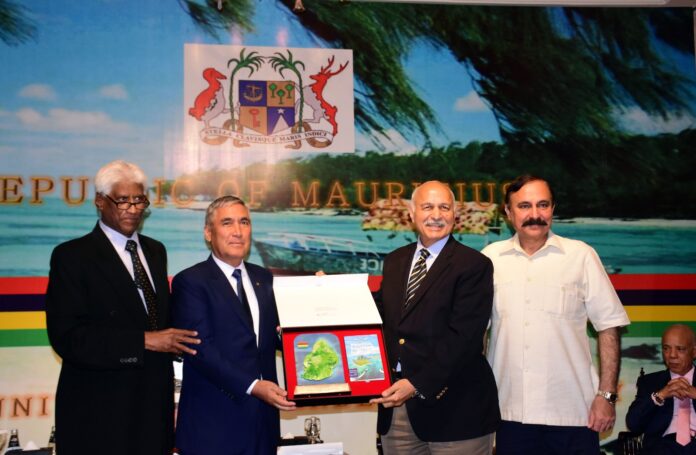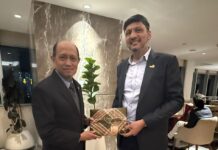Naveed Ahmed Khan
Islamabad—Mauritius High Commissioner to Pakistan H.E. Mr. Rashidally Soobadar and his spouse commemorated the 56th anniversary of Independence Day and 32nd Mauritius Republic Day here at a local hotel. The ceremony was attended by Senator Mr. Mushahid Hussain Syed, Chairman of the Senate Defence Committee, MNA, Dr. Tariq Fazal Chaudhry, Former Minister of State for Capital Administration and Development of Pakistan, Dean of the Diplomatic Corps H.E. Mr. Atadjan Novlamov, Dean of the African Group. Ambassador of Morocco H.E. Mr. Karmoune, Additional Secretary, Ministry of Foreign Affairs – Pakistan, Mr. Shehryar Akbar Khan of the Africa Desk, Ambassadors, High Commissioners, Charge D’ Affairs, and media persons.
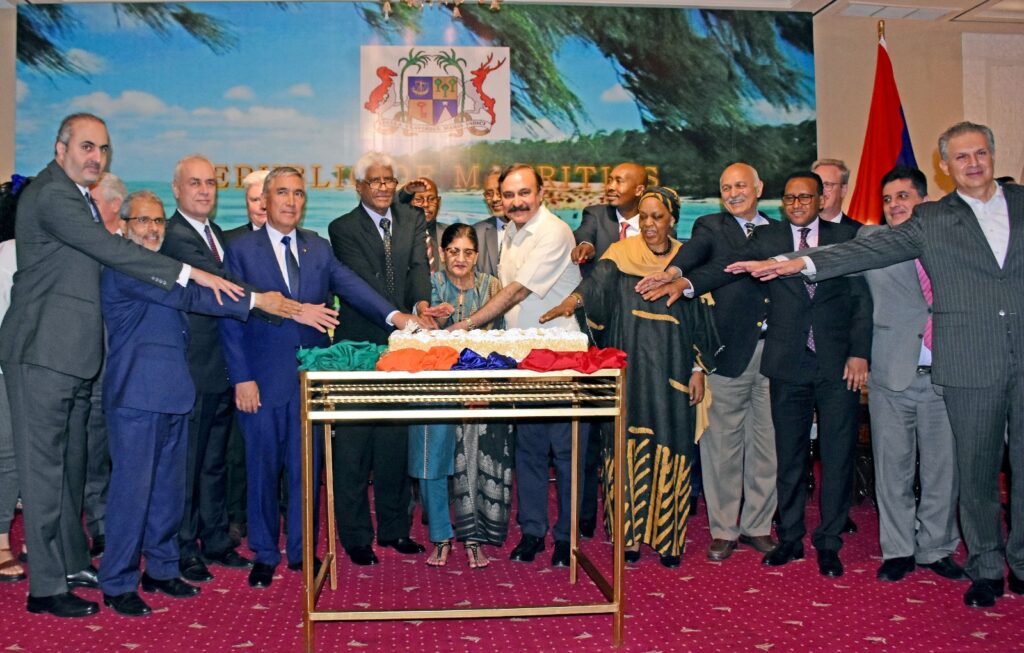 Speaking on the occasion Mr. Rashidally Soobadar lauded the deeply rooted cordial relations of both countries and said, today Mauritius is a safe and secure country, as it is one of the most peaceful countries on the African continent. He also thanked prominent personalities, diplomats, and excellencies. He paid special thanks to the Deputy Head of Mission and staff for peacefully organizing the event. The high commissioner also highlighted the significance of independence and cherished the value of freedom. Mauritius has changed the whole destiny of the island in a short period, he added.
Speaking on the occasion Mr. Rashidally Soobadar lauded the deeply rooted cordial relations of both countries and said, today Mauritius is a safe and secure country, as it is one of the most peaceful countries on the African continent. He also thanked prominent personalities, diplomats, and excellencies. He paid special thanks to the Deputy Head of Mission and staff for peacefully organizing the event. The high commissioner also highlighted the significance of independence and cherished the value of freedom. Mauritius has changed the whole destiny of the island in a short period, he added.
He also shed light on the achievements since independence on 12th March 1968. Mauritius values peace, security, law and order, good governance, accountability, accessibility, and the rule of law. He said Mauritius offers tourism expertise to exploit the untapped potential of the sector, saying he believed it can significantly contribute to the national economy. Mauritius has a strong road infrastructure, standard hotels, quality transport, and all the allied facilities to facilitate and attract tourists. He said the entire world was facing a difficult time and despite severe lockdowns due to Covid-19, Mauritius’ economy was recovering gradually from these financial constraints because of tourism.
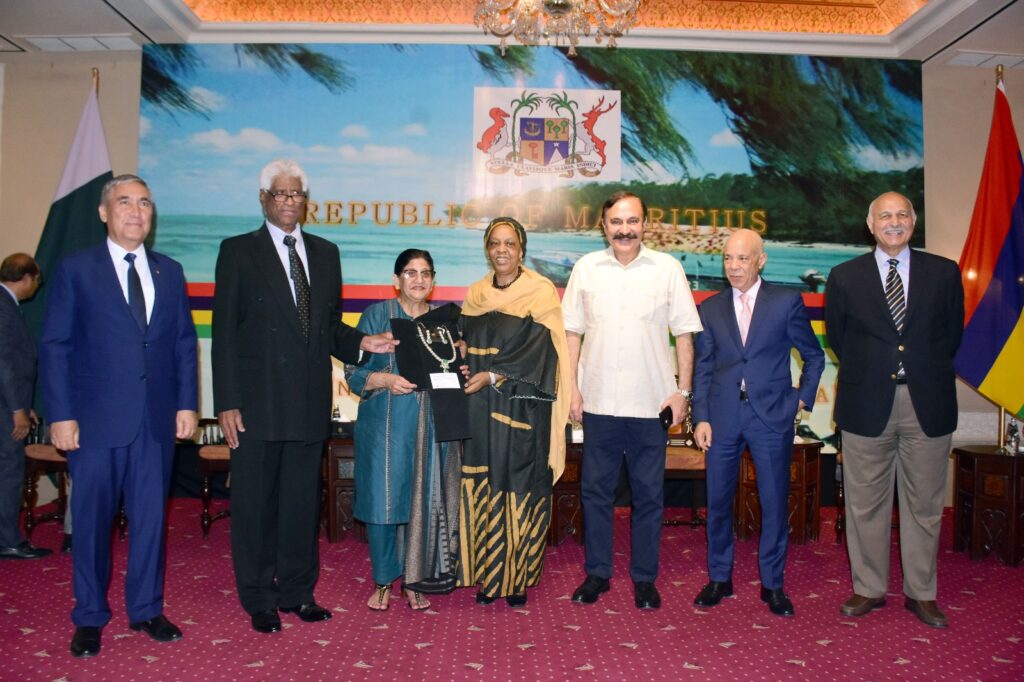 H.E. Mr. Rashidally Soobadar said in his speech that the first European power to colonize the Island was the Dutch ( Lahollande) in 1595 they brought slaves and cultivated sugarcane and they named the island Mauritius in honour of their Prince Maurice Vanddenassau. The Dutch too failed to colonize it properly and they left the Island. In 1710 the French came and they started up to 1810. Britain took over in 1810 after defeating the French in a naval battle. The British stayed until 1968. Mauritius took over in 1968 and we retain the name Mauritius.
H.E. Mr. Rashidally Soobadar said in his speech that the first European power to colonize the Island was the Dutch ( Lahollande) in 1595 they brought slaves and cultivated sugarcane and they named the island Mauritius in honour of their Prince Maurice Vanddenassau. The Dutch too failed to colonize it properly and they left the Island. In 1710 the French came and they started up to 1810. Britain took over in 1810 after defeating the French in a naval battle. The British stayed until 1968. Mauritius took over in 1968 and we retain the name Mauritius.
The ambassador said that the country was in very bad shape with high unemployment and the prevalence of poverty there was only one economic activity on the Island: sugarcane cultivation. Two British economists condemned the Island at a time when there was no hope and no future as it was indeed a period of gloom.
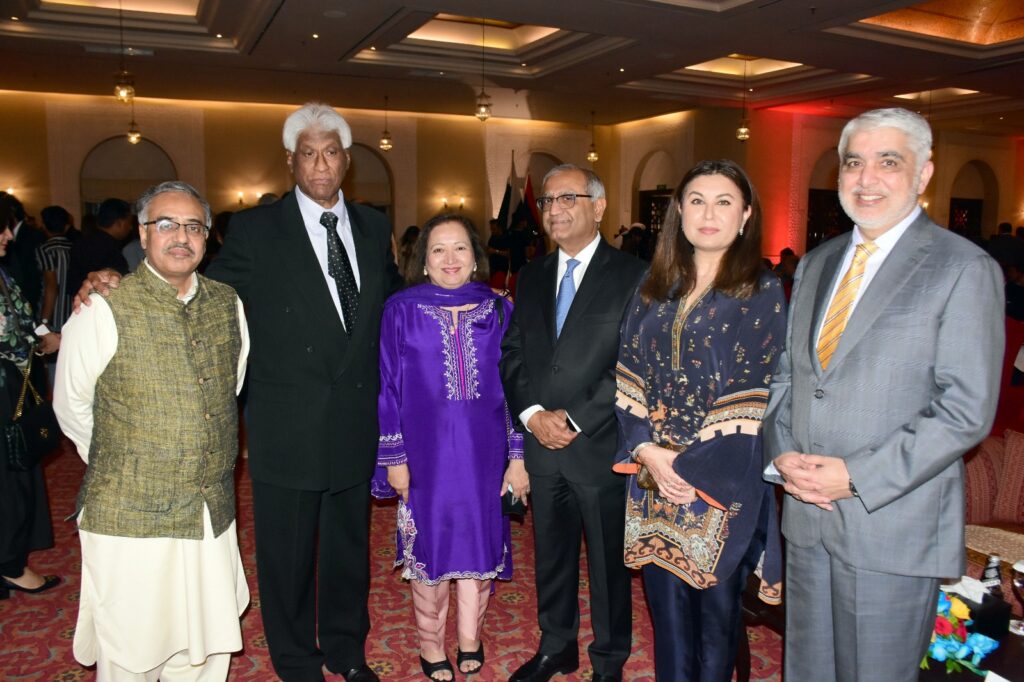 The early measures taken by the Mauritius government in 1968 were focused on addressing the daunting challenges of that period. It was a struggle against the odds. Amongst the early measures taken, the first was to build a welfare state of Mauritius while the rest of the five pillars were Free education from pre-primary to university, free transport for students, free textbooks, and examination fees paid by the government. Our whole education system is linked with Cambridge UK. We spend 4 to 5 % of our GDP on education. The second pillar is health service which is free for all Mauritians. The third pillar is the construction of houses for low-income citizens. There are 95% of Mauritians are house owners. The fourth pillar is basic retirement allowances for Mauritians of age 60. The fifth pillar is transport-free for all Mauritians 60 and above. The Mauritius government instead of spending elsewhere, invests in the welfare of the people. He said we have no army, no air force, and no military. After 56 years of freedom, when the world was moving towards neo-liberalism and a free market, Mauritius has been investing in the welfare state. We diversified the economy from one cropped economy to seven or eight economic pillars. Our economic diversification is being used by the World Bank as a model in Sub-Saharan Africa.
The early measures taken by the Mauritius government in 1968 were focused on addressing the daunting challenges of that period. It was a struggle against the odds. Amongst the early measures taken, the first was to build a welfare state of Mauritius while the rest of the five pillars were Free education from pre-primary to university, free transport for students, free textbooks, and examination fees paid by the government. Our whole education system is linked with Cambridge UK. We spend 4 to 5 % of our GDP on education. The second pillar is health service which is free for all Mauritians. The third pillar is the construction of houses for low-income citizens. There are 95% of Mauritians are house owners. The fourth pillar is basic retirement allowances for Mauritians of age 60. The fifth pillar is transport-free for all Mauritians 60 and above. The Mauritius government instead of spending elsewhere, invests in the welfare of the people. He said we have no army, no air force, and no military. After 56 years of freedom, when the world was moving towards neo-liberalism and a free market, Mauritius has been investing in the welfare state. We diversified the economy from one cropped economy to seven or eight economic pillars. Our economic diversification is being used by the World Bank as a model in Sub-Saharan Africa.
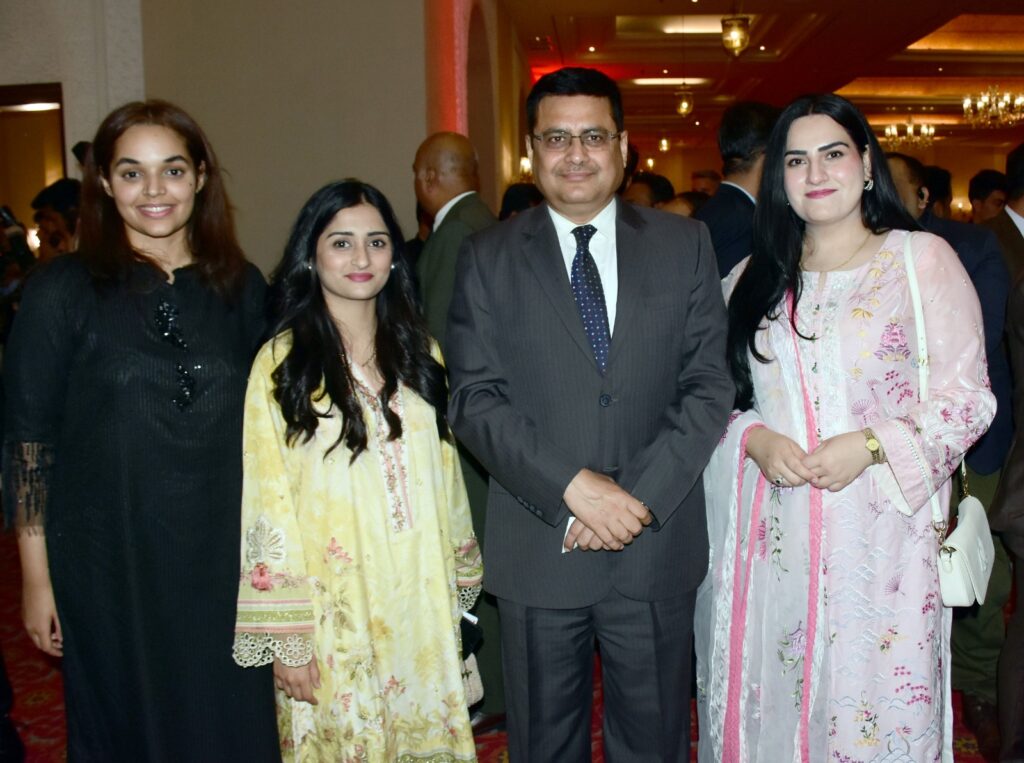 He said we built a modern and very sophisticated hospitality sector and recently built a cruise terminal for cruise ships. He added we built a solid financial sector based on global business. We are exploring a blue economy and developed a very strong ICT sector. Mauritius has become a strong secular state. He shared we built a Mauritian identity and character despite, we people came from different continents. He said people of various faiths are living together in perfect harmony and they are growing, working, building, and sharing together as we have learned to build bridges only and not walls. We raised our income per capita from 160 USD to 13,500 USD. Talking about the socio-economic indicators by world bodies he shared a few facts including ease of doing business by the World Bank, Mauritius ranks 18th out of 200 countries Human Development Index, and Mauritius ranks 60 in 2022. In the Corruption Index, Mauritius ranks 55 out of nearly 200 countries. In the Peaceful Index, Mauritius ranks 23rd out of 200 countries, and in the Democratic Index, Mauritius ranks 20th among the most democratic countries in the World.
He said we built a modern and very sophisticated hospitality sector and recently built a cruise terminal for cruise ships. He added we built a solid financial sector based on global business. We are exploring a blue economy and developed a very strong ICT sector. Mauritius has become a strong secular state. He shared we built a Mauritian identity and character despite, we people came from different continents. He said people of various faiths are living together in perfect harmony and they are growing, working, building, and sharing together as we have learned to build bridges only and not walls. We raised our income per capita from 160 USD to 13,500 USD. Talking about the socio-economic indicators by world bodies he shared a few facts including ease of doing business by the World Bank, Mauritius ranks 18th out of 200 countries Human Development Index, and Mauritius ranks 60 in 2022. In the Corruption Index, Mauritius ranks 55 out of nearly 200 countries. In the Peaceful Index, Mauritius ranks 23rd out of 200 countries, and in the Democratic Index, Mauritius ranks 20th among the most democratic countries in the World.
Press freedom index by Reporters Without Borders Mauritius ranks 63rd out of 180 countries. For good governance and the rule of law, the Ibrahim Awards an African institution based in the UK always awards 1st or 2nd positions to Mauritius. The recent index of World Economics, a UK-based institution in Mauritius as the best-governed country in Africa.
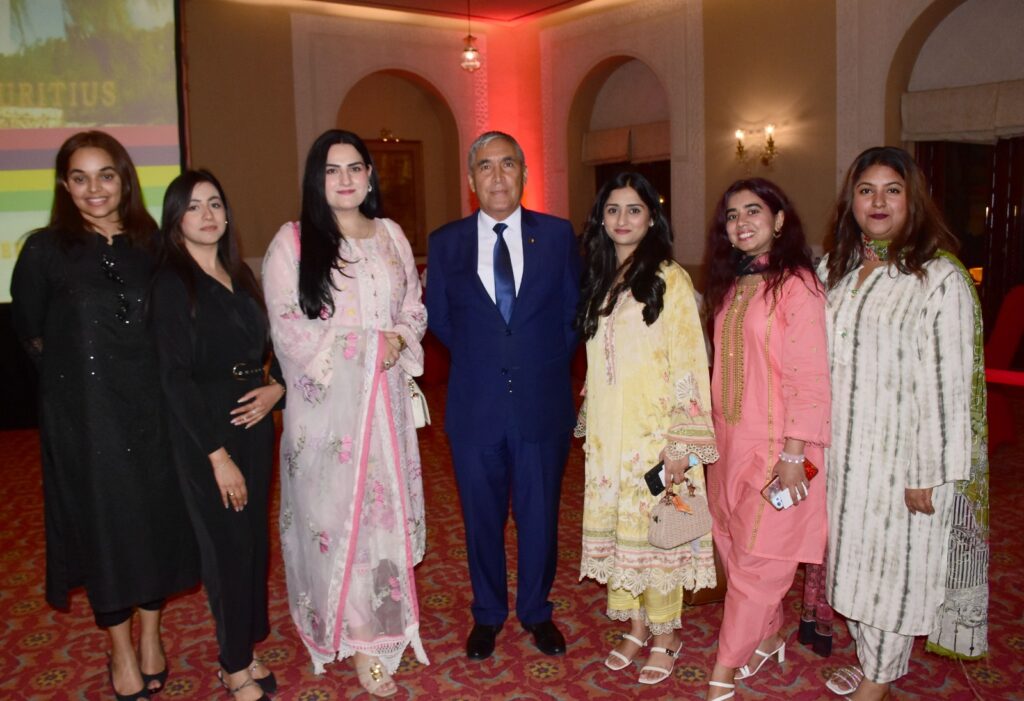 In 56 years of freedom, Mauritius has led to peaceful co-existence and also the creation of a Mauritian society based on the welfare of the nation. This is indeed a Mauritian miracle (Lemiracle Mauritian). He said there were too many problems including Drugs, Aging, and Climate Change which were addressed by the government. Talking about Mauritius and Pakistan Relationships, he said we have special ties with Pakistan and we established our diplomatic Mission in Islamabad in 1970 while Pakistan opened its High Commission in Mauritius in 1969.
In 56 years of freedom, Mauritius has led to peaceful co-existence and also the creation of a Mauritian society based on the welfare of the nation. This is indeed a Mauritian miracle (Lemiracle Mauritian). He said there were too many problems including Drugs, Aging, and Climate Change which were addressed by the government. Talking about Mauritius and Pakistan Relationships, he said we have special ties with Pakistan and we established our diplomatic Mission in Islamabad in 1970 while Pakistan opened its High Commission in Mauritius in 1969.
Almost 55 years have passed since then we have been working together on an array of projects for the uplift of the living conditions of our respective populations. There are very few countries in the World with whom Mauritius has special ties. Our people emanate from three continents (i) Africa (ii) Europe (iii) Asia.
The ambassador said Mauritians of African Descent came mainly from Mozambique, Madagascar, Seashell, and Senegal. With these countries, we have very special ties as a large portion of our population is of African descent. From Europe we have two countries with whom we have very special ties: France and the UK we have a francophone community that is Mauritian of European origin. We have also an Anglophone community and with these countries too we have blood ties. From the Asian Continent, we have 3 countries that share Mauritius namely: China, India, and Pakistan. With all these three countries, Mauritius has very special ties and as members of the Global South, we work very closely with them.
Mauritians are very fond of languages. Urdu is one of them. We teach Urdu from Primary to Tertiary level and Urdu Language is very musical to the ears. Mauritians are very fond of Qawali, Ghazal, Sher-o-Shayari, mushaira, and Pakistani dramas. In this context, we are working on a bilateral project to build an Urdu House in Mauritius for the promotion of the Urdu language and associated cultures. The ambassador said we can work together with Pakistan on a host of priority sectors like disaster risk reduction, Health matters, the ICT sector, the hospitality sector, and the promotion of ancestral cultures and traditions.
